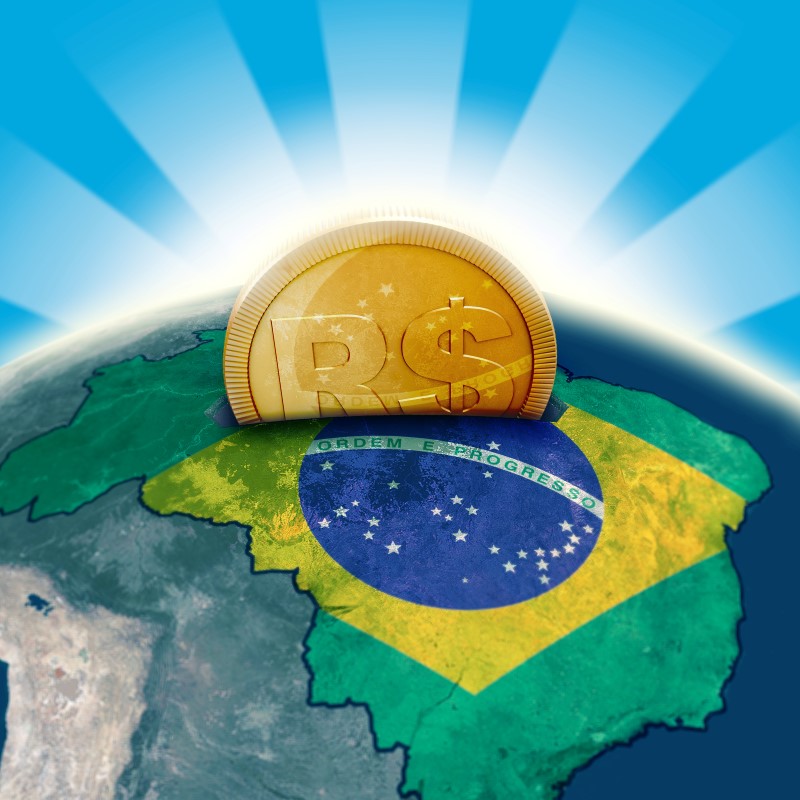RIO DE JANEIRO, BRAZIL – Brazil has lost a significant share in foreign investor portfolios amid increased political risk, poor economic activity and historically low interest rates.
Managers estimate that, in global funds, the country’s share – which has already stood at 2.5 percent – fell to 0.3 percent in late May, its lowest since 2015, a year marked by the recession and the political crisis that triggered Dilma Rousseff’s impeachment. In the portfolios focused on emerging markets, the share fell to seven percent, also its lowest since 2015.
Managers also alert to the risk that, with interest rates close to zero, not only will foreigners stop investing here, but Brazilians will also start investing overseas.

In the funds committed to emerging markets, Brazil reached a 16.5 percent share in 2011, the same level as China. Since then, South Korea, India and Taiwan now have a greater share of these portfolios than Brazilian assets, according to data from the American consultancy EPFR. China currently has a share close to 30 percent.
This year, Brazil saw a flight of foreign capital well above the level of other emerging economies, according to the International Institute of Finance (IIF), composed of the world’s 450 largest banks. In the first quarter of 2020, the capital outflow was almost double that of the 2008 crisis. Central Bank data show that US$33 billion left the country this year through the financial channels by May 22nd. In the B3, it was R$76 billion.
“The return in Brazil was very low for a high-risk country,” says a manager of a fund focused on emerging markets in London. He states that other countries offer higher interest rates than Brazil at lower risk, and cites Mexico as an example. There the interest rate stands at six percent and the country risk measured by the Credit Default Swap (CDS), a credit derivative that protects against sovereign debt caps, at 140 points. In Brazil, the CDS stands at 240 points and the interest at three percent, in addition to the growing prospect of a 2.25 percent cut.
“The world turned its back on Brazil a long time ago,” says Mauá Capital manager and partner Luiz Fernando Figueiredo, ex-director of the Central Bank. “Brazil’s image is terrible abroad,” he adds, pointing out that the way the country is handling the coronavirus crisis, “the tremendous political turmoil” and the low interest rates contribute to drive away investors, particularly short-term ones, who invest in the financial market, the stock market or fixed income.
The longer-term ones, who look at infrastructure projects, are still keeping the country on the radar, he continued on a live broadcast by FEBRABAN recently. “The perception of Brazil out there today is the worst possible.”
For the senior economist for Latin America at the British consultancy Pantheon Macroeconomics, Andres Abadia, the “surreal” way in which President Jair Bolsonaro is dealing with the pandemic, downplaying its impact, will contribute to extending its lifespan, further aggravating activity and adding to concerns about local fiscal accounts, which were already deteriorating.
Currency and Exchange
The President’s stance, coupled with the downfall of Ministers of Health Luiz Henrique Mandetta, and Nelson Teich and Minister of Justice Sérgio Moro, as well as rumors that Minister Paulo Guedes was also at risk, contributed to Brazil’s image being damaged among investors who fled the country.
In the year up to June 4th, the Brazilian real was the emerging currency that depreciated the most, with a decline of 21 percent. “The real lost heavily in this most troubled period, with the departure of Ministers and the risk of a change in the economic agenda, when the Pro-Brasil plan (a program of the government’s military wing to reactivate the economy through public works) was discussed. At that time, the market priced the worst of the worlds,” says economist Silvio Campos Neto, of Tendências Consultancy.
The Brazilian index B3 also was one of the most depreciated stock markets (-18.9 percent), second only to Colombian (-30 percent), Spanish (-21 percent) and Peruvian (-19 percent).
However, in recent weeks, Brazilian assets have started to rebound. Economist Alvaro Frasson, of BTG Pactual Digital, points out that this trend has occurred more because of the relief in the international market, with the start of the European economy reopening, than because of domestic issues. The measures implemented by the US and European monetary authorities, which flooded the market with dollars and euros, also favored the rebound of the real and the B3. “When mature markets expect a rebound, investors take more risk,” he says.
It was this international scenario – and not a wave of optimism with the country’s economy – that favored the Brazilian government in raising US$3.5 billion in foreign debt bonds, carried out on Wednesday in an operation considered successful. “The funding was successful and is explained by the great liquidity. Obviously, the external accounts are under control, which helps. But, after overcoming the panic period, investors seek greater profitability, they end up leaving the American bonds and the Brazilian securities attracted attention,” says Central Bank President Campos Neto.
Source: O Estado de S. Paulo

